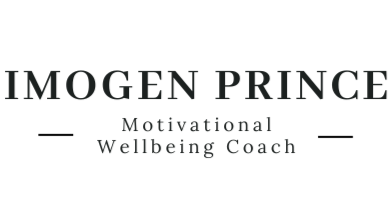In our fast-paced, modern world, it's common to hear people talk about stress, anxiety, and feeling unwell. Often, these feelings and physical symptoms are interconnected, forming what some call "dis-ease." This term goes beyond the traditional concept of disease, referring to a state of unease or imbalance in the body, mind, and soul.
In this blog, we will delve into the mind-body-soul connection which can provide valuable insights into how we can achieve better health and well-being.
The Concept of Dis-ease
Dis-ease is a state where a person feels out of balance physically, mentally, or emotionally. Unlike disease, which is often diagnosed through medical tests and treated with medication, dis-ease is more about the overall sense of well-being and harmony within oneself.
This concept emphasizes that our thoughts, emotions, and spiritual health play a crucial role in our physical health. Dis-ease is a holistic perspective on health that recognizes the interconnectedness of the mind, body, and soul. It suggests that imbalance or disharmony in one area can lead to issues in another.
The Mind-Body-Soul Connection
Our health isn't just about our physical bodies; it's a complex interplay between our minds, bodies, and souls. Each aspect influences the others profoundly, shaping our overall well-being. For instance, chronic stress can weaken our immune system, impacting our physical health, while positive thinking and mindfulness can enhance mental well-being, leading to better physical health.
To nurture our overall health, it's essential to pay attention to all aspects of ourselves—the mind, body, and soul. Engaging in stress-reducing techniques like meditation can enhance mental health, while regular exercise and a balanced diet are vital for physical well-being.
How The Connection Works?
The mind-body-soul connection intricately links mental, emotional, and spiritual states to physical health. Chronic stress, for example, prompts the release of cortisol, a hormone that affects bodily functions, including immune response and inflammation regulation.
This persistent stress can lead to a state of chronic inflammation, associated with various health issues like autoimmune disorders and cardiovascular problems. Emotions also play a significant role, as negative ones such as anger or sadness can manifest physically, causing headaches or weakening the immune system.
Conversely, spiritual well-being, marked by a sense of purpose, fosters resilience. Those with a strong sense of purpose often recover faster from illness and maintain a positive outlook, highlighting the interconnectedness of mental, emotional, spiritual, and physical aspects of health.
Holistic Health And The Mind-Body-Soul Connection
Holistic health means taking care of our whole selves—our minds, bodies, and souls. These parts are all connected, and they each affect the others. For example, feeling stressed can make our bodies sick, while positive thinking can make us feel better physically.
To stay healthy, we need to look after our minds, bodies, and souls. This might include things like exercising to keep our bodies strong, practicing mindfulness to calm our minds, and connecting with others or doing things we love to nourish our souls. When we take care of all these parts of ourselves, we feel balanced and healthy overall.
Practical Steps to Achieve Balance
Achieving balance in life requires a holistic approach that addresses physical, mental, and emotional well-being. Here are practical steps to help you achieve that balance:
1. Mindfulness and Meditation:
Incorporating regular mindfulness and meditation practices into your routine can significantly reduce stress levels and promote mental clarity. Mindfulness involves being fully present in the moment, observing thoughts and sensations without judgment.
Meditation techniques, such as focused breathing or body scans, can help quiet the mind and cultivate a sense of inner peace and relaxation. Research suggests that consistent practice can lead to long-term changes in brain structure and function, enhancing overall well-being and resilience to stress.
2. Healthy Lifestyle Choices:
Opting for nutritious foods, engaging in regular exercise, and prioritizing sufficient sleep are essential components of a healthy lifestyle that supports physical health. A balanced diet rich in fruits, vegetables, whole grains, and lean proteins provides the necessary nutrients for optimal bodily function and energy levels.
Regular physical activity not only strengthens the body but also releases endorphins, neurotransmitters that promote feelings of happiness and well-being. Adequate sleep is vital for rest and recovery, allowing the body to repair and regenerate tissues, consolidate memories, and regulate mood.
3. Spiritual Practices:
Nurturing your spiritual well-being through practices such as meditation, prayer, or spending time in nature can provide a sense of connection, purpose, and inner peace. These practices offer opportunities for self-reflection, contemplation, and renewal, fostering a deeper understanding of oneself and the world around us.
Whether it's through quiet moments of reflection, communing with nature, or participating in religious rituals, spiritual practices can replenish the soul and provide solace during challenging times.
4. Emotional Awareness:
Developing emotional awareness involves recognizing and acknowledging your feelings without judgment or suppression. By tuning into your emotions, you can gain insight into their underlying causes and respond to them in healthy ways.
This self-awareness can prevent emotions from manifesting as physical symptoms and empower you to address them proactively. Techniques such as journaling, talking to a trusted friend or therapist, or practicing self-compassion can facilitate emotional processing and healing.
5. Cultivate Meaningful Connections:
Building and nurturing meaningful relationships with others is crucial for emotional well-being. Spend quality time with loved ones, friends, and supportive communities, whether in person or virtually. Engage in open and honest communication, express your feelings, and actively listen to others.
These connections provide a sense of belonging, support, and understanding, reducing feelings of loneliness and isolation. Additionally, participating in shared activities or volunteering can foster a sense of purpose and connection with your community, enhancing overall well-being.
6. Practice Self-Care:
Making self-care a priority is essential for maintaining balance and well-being. Carve out time in your schedule for activities that bring you joy, relaxation, and rejuvenation. Engage in hobbies, interests, or activities that recharge your batteries and replenish your energy reserves.
Whether it's taking a leisurely walk in nature, enjoying a warm bath, practicing yoga, or indulging in creative pursuits like painting or writing, prioritize activities that nurture your soul and promote inner peace. Remember, self-care isn't selfish—it's an essential aspect of maintaining overall health and vitality.
Conclusion
Understanding and nurturing the mind-body-soul connection is essential for achieving a state of well-being and preventing dis-ease. By paying attention to our mental, physical, and spiritual health, we can create a balanced and harmonious life. This holistic approach to health emphasizes the importance of treating ourselves as whole beings rather than just addressing isolated symptoms.
FAQs
1. What is the mind-body-soul connection?
The mind-body-soul connection refers to the idea that our mental, physical, and spiritual health are interconnected and influence each other. Maintaining balance among these aspects can lead to overall well-being.
2. How does stress affect physical health?
Stress can negatively impact physical health by suppressing the immune system, increasing the risk of heart disease, and causing symptoms like headaches, muscle tension, and digestive issues.
3. Can positive thinking improve health?
Yes, positive thinking can improve health by reducing stress, enhancing immune function, and promoting a more optimistic outlook on life, which can lead to better health outcomes.














